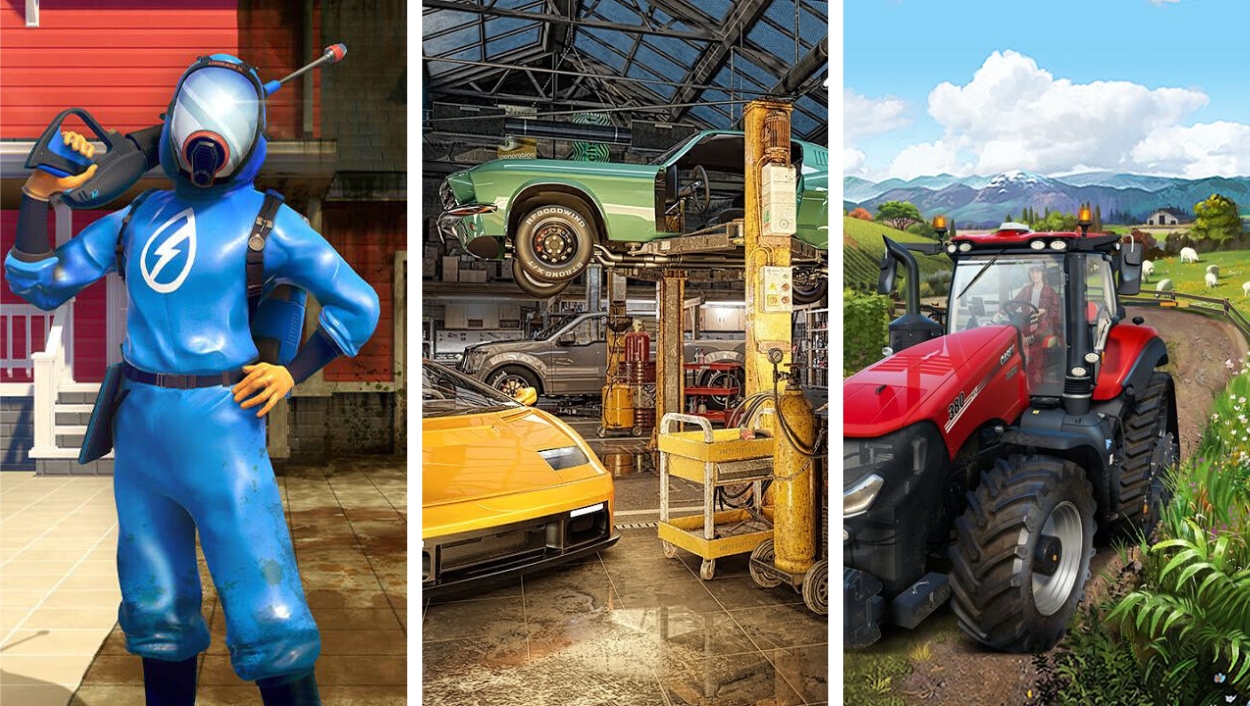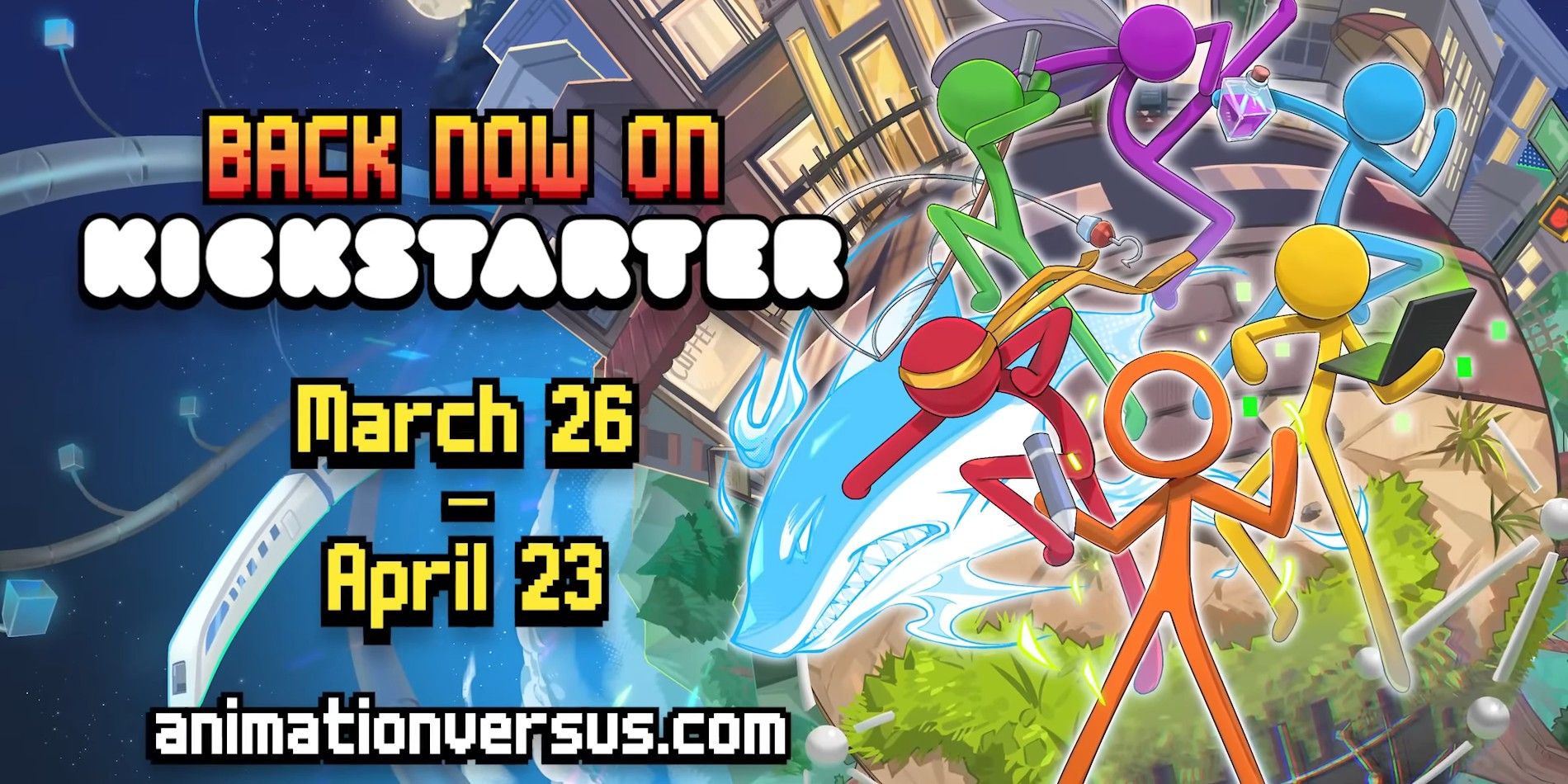
The Alluring World of Animated Simulation Games: From Farm to Space Station, a Genre That Captivates
Animated simulation games have carved a unique niche in the gaming landscape, offering a captivating blend of creative freedom, strategic depth, and charming visuals. Unlike their hyper-realistic counterparts, these games embrace stylized aesthetics, often leaning into vibrant colors, whimsical character designs, and fantastical scenarios. This deliberate choice not only makes them visually appealing but also broadens their accessibility, drawing in players who might be intimidated by the complexities of more hardcore simulations.
This article delves into the multifaceted world of animated simulation games, exploring their defining characteristics, popular subgenres, notable examples, the reasons behind their enduring appeal, and the future trends shaping their evolution.
Defining the Animated Simulation Genre: Beyond Realism
At their core, simulation games aim to mimic real-world or fantastical systems and processes, allowing players to manage resources, make strategic decisions, and observe the consequences of their actions. Animated simulation games take this fundamental principle and overlay it with a distinct visual style. The animation can range from simple 2D sprites to fully realized 3D models, but the common thread is a focus on aesthetics that prioritize personality, charm, and visual clarity over photorealistic accuracy.
Several key characteristics define the animated simulation genre:
-
Stylized Visuals: This is perhaps the most defining feature. Animated simulation games embrace artistic expression, often employing cartoonish character designs, vibrant color palettes, and exaggerated environments. This stylistic choice makes the games more visually appealing and inviting, particularly for younger audiences and those less interested in graphical fidelity.
-
Emphasis on Gameplay over Realism: While rooted in simulation principles, these games often prioritize engaging gameplay mechanics over strict adherence to reality. Systems may be simplified or abstracted to create a more enjoyable and less frustrating experience.
-
Accessibility: The combination of appealing visuals and simplified mechanics makes animated simulation games more accessible to a wider audience. The learning curve is often less steep than that of realistic simulations, allowing players to quickly grasp the core concepts and start enjoying the game.
-
Creative Expression: Many animated simulation games encourage creative expression and customization. Players can often design their own buildings, characters, and environments, fostering a sense of ownership and personal investment in the game world.
-
Relaxing and Engaging Gameplay: The combination of strategic decision-making, creative freedom, and charming visuals often results in a relaxing and engaging gameplay experience. These games can be both intellectually stimulating and emotionally rewarding, providing a welcome escape from the stresses of everyday life.
Exploring the Diverse Subgenres of Animated Simulation Games
The animated simulation genre is incredibly diverse, encompassing a wide range of subgenres that cater to different interests and play styles. Here are some of the most popular:
-
Farming Simulations: This is arguably the most well-known subgenre, popularized by titles like Stardew Valley, Animal Crossing, and Rune Factory. These games typically involve managing a farm, growing crops, raising animals, and interacting with the local community. They often incorporate elements of RPGs, social simulation, and resource management, offering a compelling blend of gameplay mechanics.
-
City-Building Simulations: These games allow players to design and manage their own cities, balancing infrastructure, economy, and citizen happiness. Examples include Cities: Skylines, Tropico, and Townscaper. Animated city-building games often feature charming building designs and vibrant urban environments, making the process of city planning a visually rewarding experience.
-
Business and Management Simulations: This subgenre focuses on managing a business or organization, making strategic decisions to maximize profits and achieve specific goals. Examples include Theme Park, Planet Coaster, and Two Point Hospital. Animated business simulations often feature quirky characters, humorous scenarios, and engaging management mechanics.
-
Life Simulation Games: These games simulate the daily lives of individuals or communities, allowing players to control their characters’ actions, build relationships, and pursue their goals. The Sims is the quintessential example, but other titles like Tomodachi Life and Harvest Moon also fall into this category.
-
Space and Colony Simulations: This subgenre takes players to the stars, tasking them with managing space stations, colonizing planets, and exploring the vast expanse of space. Examples include Oxygen Not Included, RimWorld, and Starmancer. Animated space simulations often feature intricate resource management systems, challenging survival scenarios, and compelling narratives.
Notable Examples of Animated Simulation Games: A Showcase of Creativity and Innovation
The animated simulation genre is brimming with innovative and engaging titles. Here are a few notable examples that showcase the diversity and appeal of this genre:
-
Stardew Valley: A modern classic that revitalized the farming simulation genre. Its charming pixel art, compelling gameplay loop, and heartwarming narrative have captivated millions of players.
-
Animal Crossing: New Horizons: A social simulation game that allows players to create their own idyllic island paradise, fostering creativity and community. Its relaxing gameplay and charming animal villagers have made it a global phenomenon.
-
Cities: Skylines: A city-building simulation game that offers unparalleled freedom and customization, allowing players to design and manage their own sprawling metropolises.
-
Oxygen Not Included: A challenging and rewarding space colony simulation game that tasks players with managing a group of colonists in a hostile environment. Its intricate systems and demanding gameplay have earned it a dedicated following.
-
Two Point Hospital: A humorous and engaging hospital management simulation game that features quirky patients, challenging scenarios, and a delightful sense of humor.
-
Slime Rancher: A farming/exploration game with adorably animated slimes to collect and care for.
The Enduring Appeal of Animated Simulation Games: A Combination of Factors
The enduring appeal of animated simulation games can be attributed to a combination of factors:
-
Relaxation and Escapism: These games provide a welcome escape from the stresses of everyday life, allowing players to immerse themselves in a charming and engaging virtual world. The focus on creative freedom and strategic decision-making can be both intellectually stimulating and emotionally rewarding.
-
Sense of Accomplishment: Building a successful farm, city, or business can be incredibly satisfying, providing players with a sense of accomplishment and pride in their achievements. The ability to see the tangible results of their efforts is a key motivator for many players.
-
Creative Expression: Many animated simulation games encourage creative expression and customization, allowing players to design their own buildings, characters, and environments. This fosters a sense of ownership and personal investment in the game world.
-
Community and Social Interaction: Some animated simulation games feature multiplayer modes or online communities, allowing players to connect with others and share their creations. This sense of community can enhance the overall gaming experience and foster lasting friendships.
-
Accessibility and Approachability: The combination of appealing visuals and simplified mechanics makes animated simulation games more accessible to a wider audience. The learning curve is often less steep than that of realistic simulations, allowing players to quickly grasp the core concepts and start enjoying the game.
The Future of Animated Simulation Games: Emerging Trends and Innovations
The animated simulation genre is constantly evolving, with new trends and innovations emerging all the time. Here are a few key areas to watch in the coming years:
-
Increased Integration of RPG Elements: Many animated simulation games are incorporating elements of RPGs, such as character progression, skill trees, and narrative-driven quests. This adds depth and complexity to the gameplay, providing players with a more engaging and rewarding experience.
-
Procedural Generation and Dynamic World Design: Procedural generation is being used to create more diverse and dynamic game worlds, ensuring that each playthrough is unique and unpredictable. This adds replayability and encourages exploration.
-
Enhanced AI and Social Simulation: AI is becoming more sophisticated, allowing for more realistic and engaging interactions with non-player characters (NPCs). This enhances the social simulation aspects of these games, creating more believable and immersive virtual worlds.
-
Integration of Blockchain and NFTs: Some developers are exploring the integration of blockchain technology and NFTs into animated simulation games, allowing players to own and trade in-game assets. This could potentially revolutionize the way players interact with these games and create new opportunities for monetization.
-
Virtual Reality and Augmented Reality Integration: As VR and AR technology becomes more accessible, we can expect to see more animated simulation games being developed for these platforms. This could allow players to immerse themselves even further in the game world and interact with it in new and exciting ways.
Conclusion: A Genre with Enduring Appeal and Limitless Potential
Animated simulation games offer a unique and compelling blend of creative freedom, strategic depth, and charming visuals. Their accessibility, relaxing gameplay, and focus on player expression have made them a beloved genre for gamers of all ages. As technology continues to evolve and new trends emerge, the future of animated simulation games looks brighter than ever. From farming simulations to space colony management, this genre offers something for everyone, and its enduring appeal is a testament to its power to captivate and inspire. The genre will continue to evolve, offering players new and exciting ways to create, manage, and explore virtual worlds, ensuring its continued success for years to come.

